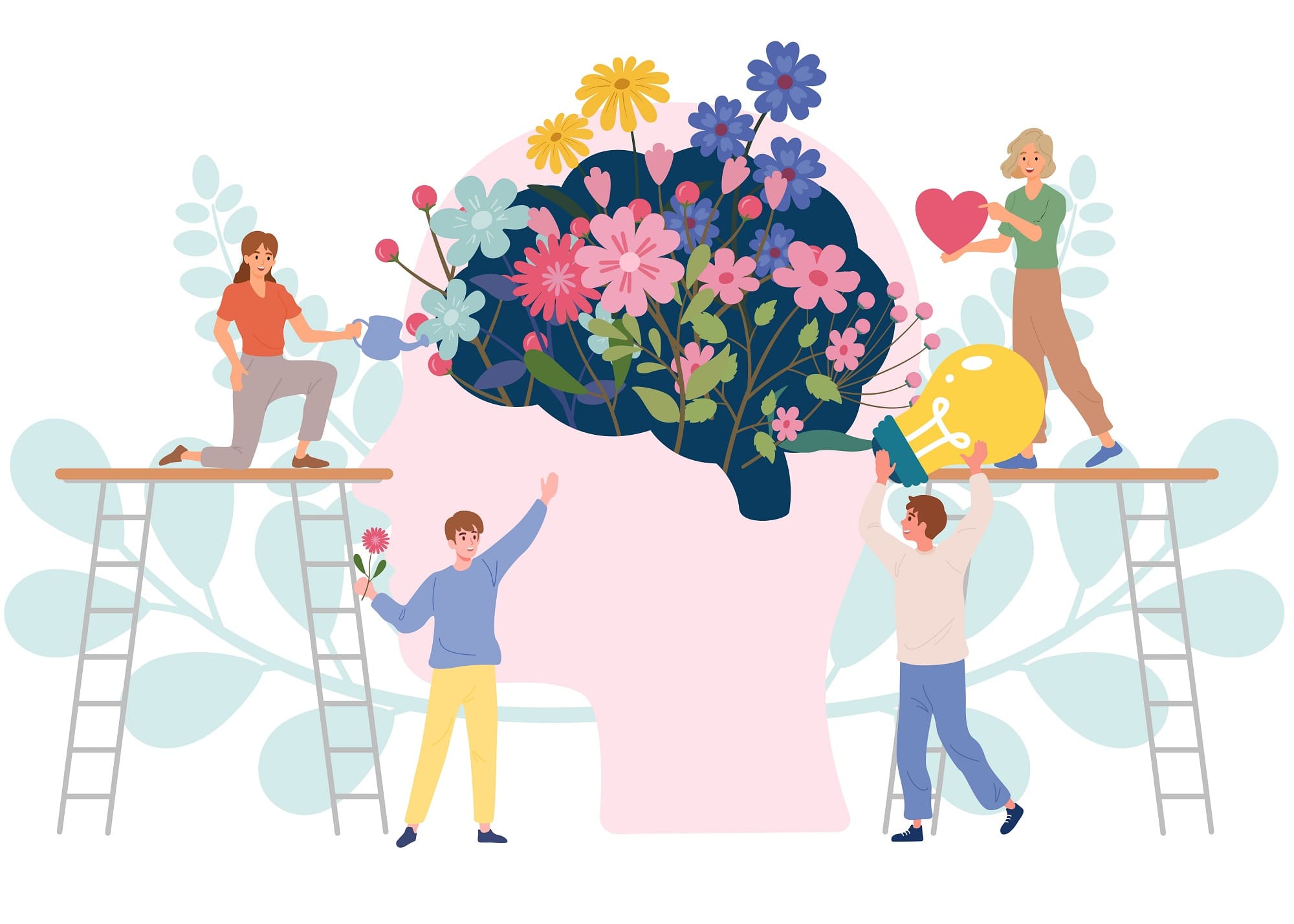Wellness Rituals That Support Mental Health
August 14, 2025
Mental health has become one of the most important aspects of overall wellness in recent years. With the global rise of mental health issues, people are looking for ways to manage their emotional and psychological well-being. From the practices of mindfulness to innovative therapies like IV hydration, the wellness industry is rapidly evolving to meet these demands. In this article, we will explore some of the most effective wellness rituals that support mental health, with a particular focus on emerging trends that are taking the industry by storm. These wellness practices are designed to cater to modern needs, whether you seek stress relief, emotional healing, or a way to enhance your mental clarity.

The Rise of Mindfulness and Meditation
One of the most well-established wellness rituals for mental health is mindfulness and meditation. This practice, deeply rooted in Buddhist traditions, has gained global recognition for its powerful benefits on the mind and body. Research continues to demonstrate that mindfulness meditation can reduce symptoms of anxiety, depression, and chronic stress, offering a natural way to enhance emotional well-being.
Mindfulness encourages individuals to focus on the present moment without judgment, which helps break the cycle of ruminative thinking that often fuels mental health struggles. Studies have shown that regular mindfulness practice can change the structure of the brain, particularly areas involved in emotional regulation and stress management (Zeidan et al., 2010). This transformation makes mindfulness an excellent tool for those experiencing mental health challenges.
In recent years, there has been a rise in digital platforms offering guided mindfulness sessions. These platforms, such as Headspace and Calm, provide access to meditation sessions designed to help users manage stress, improve sleep, and promote emotional resilience. As a result, mindfulness has become an easily accessible tool for anyone looking to enhance their mental health.
Emerging Trend: IV Therapy for Mental Wellness
In a world where people are seeking more immediate and effective results for their mental health, IV therapy has gained significant traction. Initially used in hospitals and medical settings, IV therapy has moved into the wellness space as a quick and efficient method to support both physical and mental health.
IV hydration therapy replenishes and rejuvenates the body by infusing vitamins, minerals, and other nutrients directly into the bloodstream. Beyond just replenishing physical hydration, many wellness clinics offer customized IV treatments that include nutrients like magnesium, vitamin C, and B vitamins—each known for their role in reducing stress and boosting mental clarity.
A growing body of evidence supports the idea that certain nutrients play a significant role in mood regulation. For example, magnesium is known to help regulate the body’s stress response, while vitamin C has been shown to help lower cortisol levels (Miller et al., 2007). As a result, IV therapy is being embraced by those looking for a quick way to improve mental clarity, reduce anxiety, and boost overall emotional well-being.
The convenience and immediate effects of IV therapy have made it especially popular among busy professionals and individuals with high-stress lifestyles. Many clinics offer mobile services, bringing the therapy directly to clients’ homes or offices, making it a flexible option for anyone in need of mental health support.
The Impact of Nature on Mental Health
In the fast-paced world we live in, it can be easy to overlook the profound impact nature has on our mental health. Numerous studies have demonstrated the benefits of spending time outdoors in natural environments. Forest bathing, or “Shinrin-yoku,” is a Japanese practice that encourages individuals to immerse themselves in the forest for physical and mental rejuvenation.
Research shows that spending time in nature can lower levels of cortisol, reduce blood pressure, and promote a sense of calm and well-being (Berman et al., 2012). The therapeutic effects of nature have been linked to a reduction in anxiety and depression, making it a powerful tool for mental wellness.
With more people spending time indoors due to work, digital media consumption, and urban living, it’s important to reintroduce natural experiences into daily routines. This could be as simple as taking a walk in the park, practicing yoga outdoors, or hiking through the woods. These small actions can have a significant impact on reducing mental fatigue and promoting relaxation.
Movement and Exercise for Mental Health
Exercise has long been associated with physical health, but its impact on mental health is equally important. Studies consistently show that physical activity can significantly reduce the symptoms of anxiety and depression while promoting better sleep, improved mood, and enhanced cognitive function.
Physical exercise, particularly aerobic activities like running, cycling, or swimming, can trigger the release of endorphins, which are chemicals that help reduce pain and improve mood. Furthermore, regular exercise can improve the brain’s ability to regulate emotions, making it easier to handle stressful situations (Moss & Gagen, 2019).
In addition to traditional forms of exercise, newer wellness practices like high-intensity interval training (HIIT) and dance-based fitness programs like Zumba have emerged as fun and effective ways to stay active while also benefiting mental health. These activities promote both physical and mental wellness by releasing stress, boosting self-esteem, and promoting a sense of achievement.
The Power of Nutrition on Mental Health
We are all familiar with the saying, “you are what you eat,” but did you know that the food you consume can play a significant role in your mental health? Emerging research has shown that certain nutrients, including omega-3 fatty acids, antioxidants, and vitamins, can help regulate mood and combat symptoms of depression and anxiety.
A well-balanced diet rich in whole foods—such as fruits, vegetables, lean proteins, and healthy fats—supports optimal brain function. For example, omega-3 fatty acids, found in fatty fish like salmon, walnuts, and flaxseeds, are known to play a crucial role in brain health and mental well-being. Studies suggest that increasing omega-3 intake can help reduce symptoms of depression and anxiety (Murray et al., 2002).
Probiotic-rich foods, such as yogurt, kefir, and kimchi, are also becoming popular in the mental wellness space. These foods support gut health, which is believed to have a direct influence on mental health. The gut-brain connection is a burgeoning field of research, with scientists uncovering how the gut microbiome can affect mood and cognitive function (Smith et al., 2018).
Conclusion: Embracing the Future of Mental Health Wellness
As awareness of mental health continues to grow, so too do the practices and rituals that support it. From mindfulness and meditation to the latest innovations like IV therapy and the power of nature, there is no shortage of wellness rituals to choose from. The emerging trends in wellness reflect a growing desire for more effective, accessible, and immediate methods of improving mental health.
By incorporating these wellness practices into our daily lives, we can reduce stress, enhance emotional resilience, and promote overall well-being. Whether it’s taking time to meditate, seeking out nature, or investing in therapies that nourish both the body and mind, these rituals offer a variety of ways to support and nurture mental health.
As we continue to explore new frontiers in wellness, one thing remains clear: prioritizing mental health is essential for living a balanced, fulfilled life.
References
- Berman, M. G., Jonides, J., & Kaplan, S. (2012). The cognitive benefits of interacting with nature. Psychological Science, 19(12), 1207-1212. Available at: https://journals.sagepub.com (Accessed: 14 August 2025).
- Miller, G. E., Chen, E., & Zhou, E. S. (2007). Psychological stress in childhood and susceptibility to the chronic diseases of aging: Moving toward a model of behavioral and biological mechanisms. Psychological Bulletin, 133(5), 1005-1027. Available at: https://psycnet.apa.org (Accessed: 14 August 2025).
- Moss, M., & Gagen, M. (2019). The role of physical activity in promoting mental health. Journal of Physical Activity and Health, 16(2), 109-118. Available at: https://journals.humankinetics.com (Accessed: 14 August 2025).







